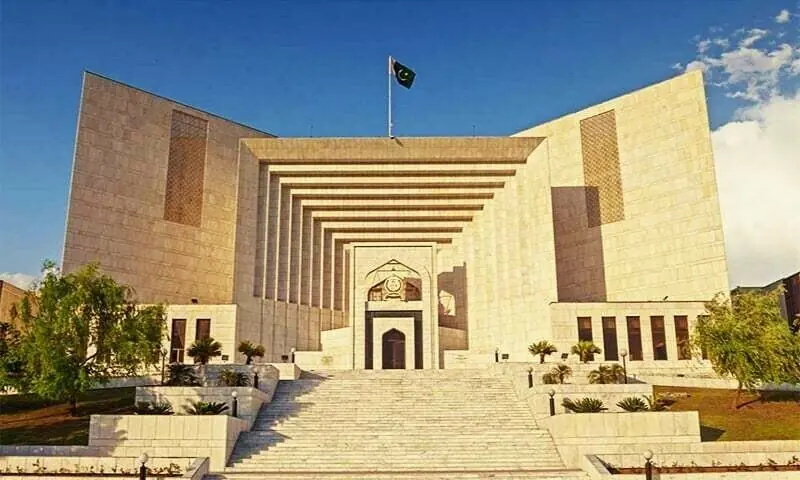There was no discussion on the 27th Amendment in a full court meeting called by Chief Justice of Pakistan (CJP) Yahya Afridi on Friday, according to a Supreme Court (SC) press release.
It was reported a day ago that after a series of letters seeking a full court meeting on the contentious amendment, which was enacted into law yesterday, the CJP called one today.
According to the press release issued after the meeting, the participants “unanimously updated the Supreme Court Rules, 2025 on the recommendation of the committee, comprising Hon’ble Justice Shahid Waheed, Hon’ble Justice Irfan Saadat Khan, Hon’ble Justice Naeem Akhtar Afghan and Hon’ble Justice Aqeel Ahmed Abbasi, constituted under Rule 1(4) of Order I of the Supreme Court Rules, 2025 for removal of difficulties arising in giving effect to its provisions”.
It said the meeting extended “sincere appreciation to each member of the committee individually for undertaking such a massive task of meticulously reviewing the Supreme Court Rules, 1980, drafting the Supreme Court Rules, 2025 and addressing the suggestions thereon for removal of difficulties”.
“The updated Supreme Court Rules, 2025, are to improve service delivery and ensure inexpensive and expeditious administration of justice,” it added.
Moreover, the full court meeting also unanimously approved the grant of the status of senior advocate of the Supreme Court to Muhammad Munir Paracha — who was an advocate of the SC until now — in terms of Rule 5 of Order IV of the Supreme Court Rules, 2025.
Letters by SC judges
Yesterday, Justice Salahuddin Panhwar became the third judge SC to request a full court to deliberate on the 27th Constitutional Amendment.
Justice Panwhar, in a two-page letter, requested the CJP to call the full court to examine the amendment clause by clause and study its implications against Articles 175, 175A, 189, 190, 191 and 209 of the Constitution — provisions which deal with the judiciary.
“From what has been foreshadowed, this amendment may unsettle the careful balance that the framers intended,” Justice Panwhar wrote, warning that the amendment may “touch upon the security of tenure, the composition of benches, the appointment and removal of judges, or even the financial and administrative autonomy of courts”.
Before the bill for the constitutional amendment was passed, Justices Syed Mansoor Ali Shah and Justice Athar Minallah — both of whom tendered their resignations yesterday following the enactment of the 27th Amendment — had written separate letters to the CJP, asking for a full court meeting or the convening of the judicial conference to discuss the constitutional tweaks.
In a six-page letter, Justice Shah described the amendment as a political device to weaken the judiciary and urged CJP Afridi to confront the executive to lay down a rule that no amendments affecting the judiciary be adopted without prior consultations with superior judges.
“You (CJP) act not merely as its administrator but as its guardian,” Justice Shah said while also requesting a full court meeting or preferably a joint convention of all constitutional court judges, including the Federal Shariat Court (FSC) and high courts, to articulate the judiciary’s collective stance.
Separately, in a seven-page letter, Justice Minhallah said: “I would respectfully urge that a judicial conference be convened for having an open institutional dialogue with all judges of the SC and the high courts to consider threats to independence of the judiciary that may be jeopardising its constitutional function of acting as a machinery for enforcement of fundamental rights of citizens.
“A candid and open discussion on the state of our institution, the challenges to its independence, and the steps necessary to reclaim the people’s trust has become inevitable. The judiciary is at a perilous crossroads. The truth must be spoken at this moment of reckoning.”
He further said that Parliament may wish to consider the judiciary’s institutional perspective articulated through the proposed judicial conference, before it embarks upon “tinkering with the basic law of the land”.
Senior lawyer Faisal Siddiqui, in a letter endorsed by ex-judges, had also asked the CJP to take a stand on the matter.





